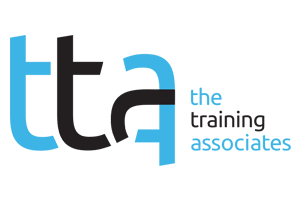Every leader, at some point in their career, has grappled with the challenges of delegation. Frustration, uncertainty and anxiety can quickly set in when the team’s performance falls short of acceptable outcomes. This can be considered comparable to a car’s engine sputtering and struggling to find its optimal speed on an open highway. The dilemma many leaders face is navigating the fine line between empowerment and micromanagement. Finding this balance is crucial, as effective delegation breeds teamwork and innovation, while excessive control can stifle creativity, high zap energy and positive emotions of a talented team.
Warren Bennis, a renowned author on leadership said it best: “The best leaders are clear in their expectations and relentless in their pursuit of results.” So, how can you activate your leadership shift to harness your team’s talents and achieve your goals?
This article presents ideas to help you navigate the intricacies of delegation and achieve improved team performance. Here are five ways to help you ramp up your team assignments to empowering opportunities.
Trust and understanding:
Sometimes we limit our success by not mastering the skill of delegation. At the heart of resolving delegation dilemmas lie two fundamental principles: trust in your team’s capabilities and have a clear understanding of each team member’s strengths and weaknesses. You’ve no doubt heard the statement many times, “Hire people better than you are, then leave them to get on with it”. It is a tried-and-true behavior. However, it requires more than just hiring talented people. Imagine a conductor leading a group of talented musicians to create a harmonious symphony. The conductor must know when to let each instrumentalist shine by delegating the right notes to them, showcasing their unique skills and abilities while ensuring that the collective masterpiece is achieved. Having a deep understanding of each team member’s talents is essential in achieving optimal results.
By thoroughly assessing each team member’s skills, strengths and abilities, and collectively acknowledging their talents, you’re readying to infuse confidence in team members that will generate interest in a celebrated effort to achieve positive results. This not only fosters trust but also provides a solid foundation for setting your team on the path to conquer challenges together in pursuit of shared goals. It all hinges on the determination and willingness of each team member to overcome obstacles.
The use of reliable assessments (coupled with the leader’s own evaluations) and open collaboration with team members serve to dispel hearsay, emotional reactions or baseless assumptions about team members. This approach introduces a measure of objectivity and promotes acceptance, enabling the leader to make more informed delegation decisions.
Clear communication and vision:
Championship leaders demonstrate exceptional proficiency in effectively communicating their expectations and articulating a compelling vision for the team, ensuring that everyone comprehends how their individual roles contribute to the broader game plan. They foster a clear understanding among team members regarding their own responsibilities as well as those of their peers. However, it’s crucial to note that merely adhering to a culture of “staying in one’s lane” can inadvertently foster silos within the team, potentially triggering a detrimental downward spiral. Instead, embracing each team member’s distinct talents facilitates the exchange of innovative ideas and cultivates a collaborative and supportive environment, thereby promoting team cohesion and success.
Focusing on results without understanding is like having a map without knowing the terrain. To genuinely navigate the journey toward the vision and mission, you must not only read the map but also understand the landscape (i.e., the narrative) to make informed decisions and stay on the right path.
Open and cross-collaboration among team members provide a breeding ground for ways to handle uncertainty, and opposite ideas, and build on a celebration worthy of innovative solutions. This clarity not only ensures that each member knows their part but also creates a sense of purpose and unity within the team.
Development:
To overcome delegation dilemmas, providing the necessary resources and investing in team members’ development allows them to explore interests outside of their roles, fostering creativity and unique perspectives that can enhance problem-solving during task execution. These actions empower team members to commit to supporting each other and synchronize their efforts in cross-functional sharing sessions, which promotes a collaborative culture and uncovers hidden talents within the team. By fostering an environment where skills are sharpened and individuals adapt to new roles, leaders can leverage the full potential of their team members and optimize their collective performance.
Regular feedback:
Regular feedback within a team both from team members to each other and the leader to team members, is a fundamental skill that significantly improves delegation dilemmas. Open and honest feedback provides valuable insight into the delegetee’s progress and allows the leader to adjust instructions, clarify expectations, and address challenges promptly. It facilitates a culture of transparency, openness and honest engagement. Open and honest empathetic feedback is the compass that guides the leader and team members ensuring their alignment in navigating challenges and reaching transformative heights.
Results focused:
Champion leaders focus on results and are willing to make changes if certain roles are not yielding desired outcomes. Focusing on results extends beyond mere metrics; it involves adopting a mindset that seeks to understand the narrative behind the metrics and how they will be applied for the best outcomes. It requires embracing the discomfort and plunging into the act of doing. It’s about recognizing that data tells a story, and we can align our efforts to what the story is telling us. It also allows for an opportunity to dig deeper — to assess, evaluate and act on wildly creative ways to accomplish higher goals.
Conclusion
In conclusion, delegation dilemmas are surmountable. Leaders who prioritize trust, understanding, clear communication and resource investment can unlock the true potential of their teams. By following these strategies, you can elevate your team’s performance, enabling them to reach new levels and collectively achieve your goals.
Remember, leadership is not just about guiding from the front: It’s about enabling your team to shine and succeed together.










